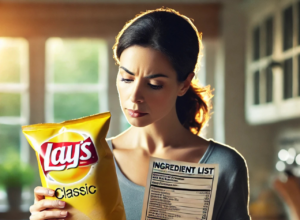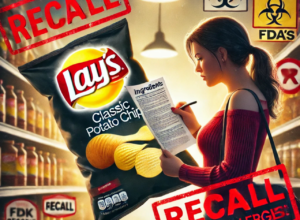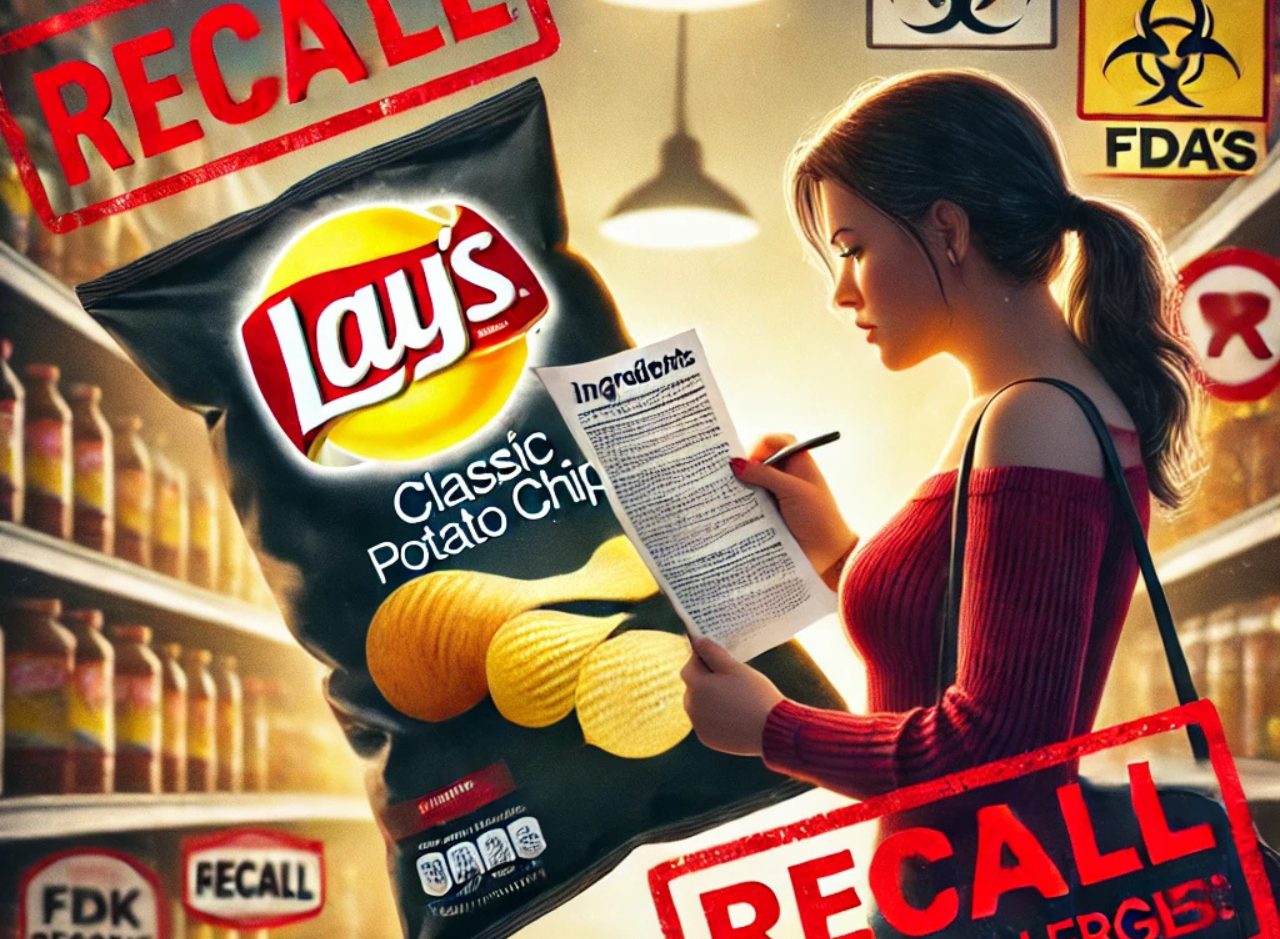A Trusted Snack Turns Dangerous? Imagine grabbing your favorite bag of Lay’s Classic Potato Chips, only to find out later that they could pose a life-threatening risk. That’s the alarming reality for consumers in Oregon and Washington as Frito-Lay issues a recall on certain batches due to undeclared milk—a top food allergen that has now elevated the recall to the FDA’s highest risk classification: Class I. But what does this mean for consumers, and how did this trusted brand end up in this predicament?
Understanding the Lay’s Potato Chips Recall
The FDA’s Class I Recall: Why It Matters 
The U.S. Food and Drug Administration (FDA) categorizes food recalls into three levels, with Class I being the most severe. A Class I recall signifies that consuming or being exposed to the product could result in serious adverse health consequences or death. In this case, individuals with milk allergies face the potential risk of severe reactions, ranging from hives and cramps to swollen vocal cords and unconsciousness.
The recall affects a limited number of 13 oz. bags of Lay’s Classic Potato Chips that were sold in Oregon and Washington. If you have Lay’s chips with a “guaranteed fresh” date of February 11 and a manufacturing code of 6462307xx or 6463307xx, it is crucial that you discard them immediately—especially if someone in your household has a milk allergy.
The Timeline of the Recall
- December 13, 2024: Frito-Lay initially announces the recall after a consumer reports an undeclared milk allergen.
- December 16, 2024: The FDA publicly warns that those with milk allergies are at risk of “serious or life-threatening allergic reactions.”
- January 27, 2025: The recall is escalated to Class I, indicating the highest level of danger for consumers.
While no deaths or hospitalizations have been reported so far, the FDA’s heightened warning emphasizes the importance of food safety and accurate labeling.
The Bigger Picture: The Hidden Dangers in Everyday Foods
For most consumers, food recalls are inconvenient. But for those with allergies, they’re terrifying reminders of the hidden dangers lurking in common foods.
Why Is Milk a High-Risk Allergen?
Milk is one of the FDA’s eight major food allergens, a common trigger for allergic reactions. Symptoms can vary from mild discomfort to life-threatening anaphylaxis, because of this, clear and accurate labeling is crucial for consumer safety.
Unfortunately, cross-contamination and manufacturing errors can lead to undeclared allergens, as seen in this case with Lay’s Classic Potato Chips.
The Impact on Frito-Lay and Consumer Trust
Lay’s, a household name, is now facing serious questions about quality control and consumer safety. Recalls like this don’t just disappear once products are pulled from shelves—they leave lasting impacts:
- Consumer Distrust: When a brand fails to label allergens properly, consumers with food sensitivities may hesitate to buy their products in the future.
- Regulatory Scrutiny: The FDA will likely increase oversight on Frito-Lay’s production and labeling processes to prevent future incidents.
- Legal Consequences: Food companies have been held liable for allergic reactions caused by mislabeling. Frito-Lay could face lawsuits if any consumer suffers serious harm.
In response, Frito-Lay stated that they were alerted to the issue through a customer complaint—raising questions about why their internal checks failed to catch the error before distribution.
How Consumers Can Stay Safe?
With food recalls becoming increasingly common, taking proactive steps to protect yourself and your family is essential.
1. Check for Recalls Regularly
Stay informed by visiting the FDA’s website or signing up for recall alerts. Brands often post recall information on their official social media accounts as well.
2. Read Labels Carefully
Even familiar products can change ingredients or manufacturing processes. Always double-check ingredient lists, especially if you have allergies.
3. Contact the Manufacturer
If you suspect an undeclared allergen or another safety issue, report it to the company or the FDA. Consumer reports often play a key role in initiating recalls.
4. Have an Emergency Plan
For those with severe allergies, always carry necessary medication such as an epinephrine auto-injector (EpiPen) and educate family members on emergency procedures.
Final Thoughts: Food Safety Is Everyone’s Responsibility
 The Lay’s potato chips recall serves as a wake-up call for both consumers and food manufacturers. It underscores the importance of transparency, stringent quality control, and consumer vigilance.
The Lay’s potato chips recall serves as a wake-up call for both consumers and food manufacturers. It underscores the importance of transparency, stringent quality control, and consumer vigilance.
While Frito-Lay works to correct this mistake, the responsibility also lies with us—the consumers—to stay informed and proactive about food safety.
Question for You: Have you ever encountered a food recall? How did it impact your trust in that brand? Share your thoughts in the comments below!
Stay Safe, Stay Informed. If you found this article helpful, share it with others who might benefit from knowing about this serious food safety issue!


